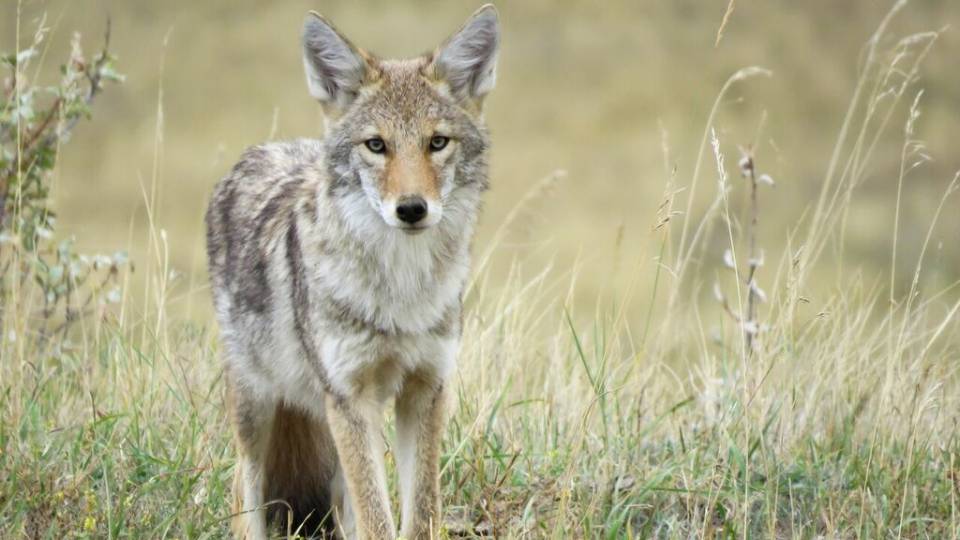Special to Portland Press Herald
Coyote snaring is back in the news. A recent internal memorandum by Department of Inland Fisheries and Wildlife regional biologist Chuck Hulsey reiterated the lack of IF&W support for the coyote program, and had an accompanying necropsy report that detailed the horrific way in which these snared animals died.
It is an indefensible program that exists solely because of the work of special-interest groups and the lack of public awareness. For the past two Legislatures Maine Friends of Animals has submitted bills to end coyote snaring. We testified about a program that was totally ineffectual, extremely cruel, a waste of tax payer dollars, and one the department does not believe in nor wishes to administer. Yet both times the bill was unanimously defeated in the IF&W Committee under pressure from the Sportsman’s Alliance of Maine and the Maine Trapper’s Association.
A snare is a lethal wire intended to catch and strangle a coyote to death in a matter of a few minutes. However, the necropsy report shows that ⅔ of coyotes snared did not die a quick, humane death.
Instead, to quote from the report, “hemorrhaging was evident in most of the coyotes’ swollen heads. Their eyes and mouths were bloody, their lips split and their teeth broken from trying to chew their way out of the snare. There were broken limbs resulting from long struggling. And in many cases, because the coyote was not even dead when the snarer returned, it was clubbed to death.” this surely would be animal cruelty if these were domestic dogs.
Instead of acknowledging the ineffectiveness of the program and listening to their own wildlife biologists, the IF&W Committee asked the department to conduct an “analysis” of the Animal damage Control Program.
The department’s report on coyote control again urged the discontinuation of the snaring program because it has always been controversial and ineffective by scientific standards; essentially, it has not worked and never will.
Another IF&W wildlife biologist, Henry Hilton, publicly stated, “Just on financial grounds, the snaring program borders on fiscal irresponsibility when there are so many other IF&W needs.” This was before the department’s present $8 million budget deficit.
This was not what SAM and the members of the IF&W Committee, many who are SAM member and/or share its views, wanted to hear. As a result, they then submitted a resolution directing the department “…to submit a proposal to encouraging the harvest of coyotes;” thus forcing the department to spend more time engaging in finding ways to increase the practice after it just reported it can’t work.
Coyotes deserve better treatment
The committee will not even discuss the ineffectiveness of the snaring program because it and SAM want to manage wildlife with the least amount of public discussion as possible on any issues that they are vulnerable on or the deem threatening to their interests. As Hulsey wrote in his memorandum, “Those changes are politically driven primarily from a couple of small but highly effective special interest groups.”
There are a number of other reasons the end coyote snaring - snares regularly catch not target animals, coyotes can withstand mortality rates of 70 percent and thrive again; they are an important species to the ecosystem; deer herds are at an all-time high; the Canadian lynx, an endangered species has similar habitat and prey; and Maine is only one of two states that allow this inhumane practice.
But the real issue is the obstructionist ways of SAM, the Maine Trappers Association and the IF&W Committee. The fate of wildlife resources of this state should be determined by our wildlife biologists, scientific data and all of our legislators, not by special interest groups. Why was such a controversial program allowed to increase without even a public hearing? Why is a special interest group managing what wildlife issues the public gets to know and debate and what it doesn’t?
It is time to end special-interest obstructionist legislating, the over-inflated rhetoric from the outdoors community on coyotes, a wasteful program that can not be reasonably justified, and this slow and cruel death in the woods.
Special to the Press Herald
Robert Fisk, Jr. , April 7, 2005
President and Director of Maine Friends of Animals and former State Representive from Falmouth


